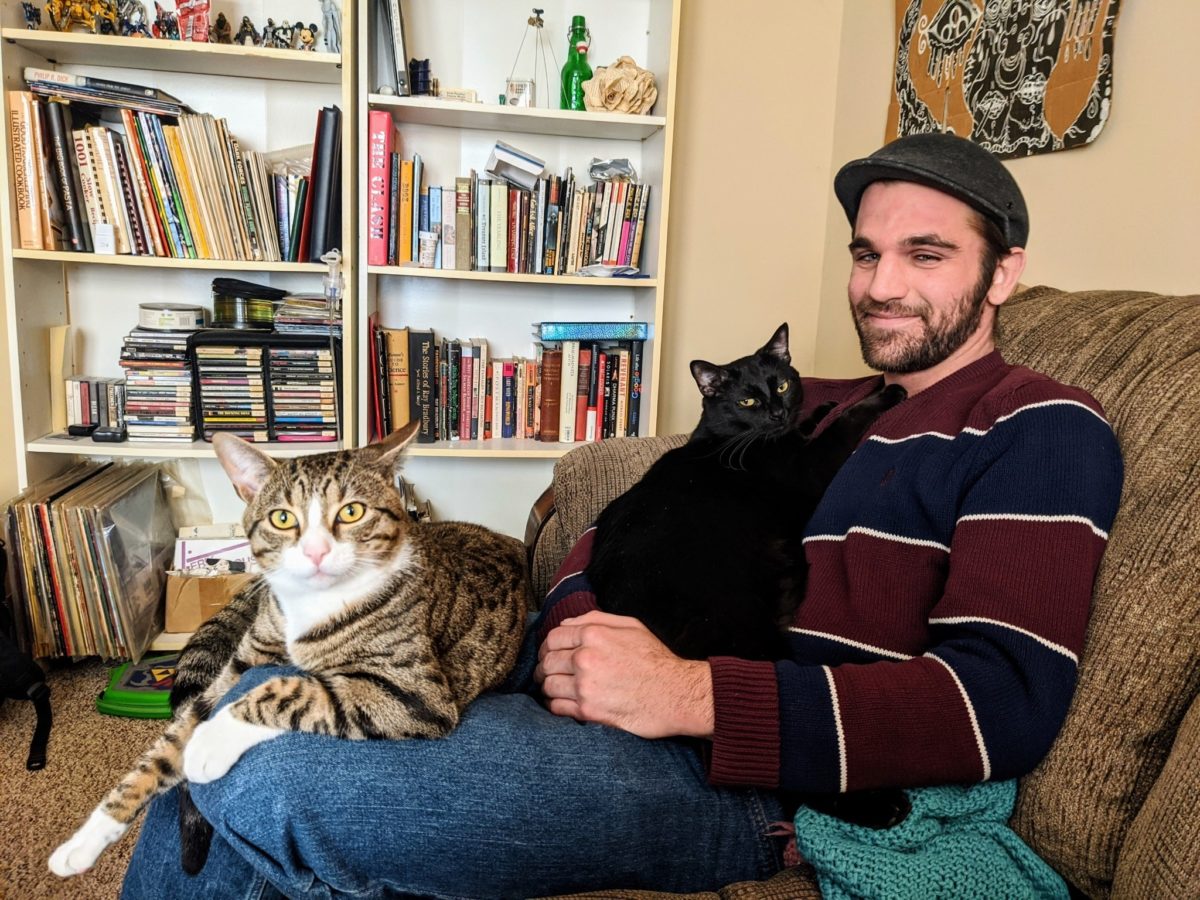Poets for a Cause Spotlight: Andrew Crawford Discusses Mental Health Through His Poetry
My initial goal with the “Poets for a Cause” spotlight articles was to showcase poets with passions for shedding light on a variety of important topics such as mental health, chronic illness, domestic violence, female empowerment, childhood cancer, trauma, and self-love. My favorite thing about this series is that I get to spend a lot of time talking to the talented poets in this community about topics that stir their passions. I love how even if it’s the same topic, each writer brings a different perspective and creative presence into the space. In a previous article, K.Y. Robinson did a beautiful job discussing the very real stigma surrounding mental illness and how she desires to help people feel less alone in their circumstances.
In this month’s spotlight, I wanted to showcase poet Andrew Crawford, who also writes about mental illness. I hope you enjoy the conversation as much as I did.
Andrew Crawford: “The main thing I want to express through my writing is struggling with mental illness in various ways, but also a certain resolve it takes to persevere.
Honestly, I’ve never written for anyone but myself, all of it is what I’m thinking or feeling at the moment. I’ve also found it’s incredibly therapeutic for that reason because I’m able to sit with how I feel, let myself feel it for a moment, let myself process it, then move on. It can almost be like exorcising it, otherwise, you’re just sitting with it running circles in your head. But I’ve also started putting it out there, in the hopes that I can express it to people who don’t understand in a way that they can get a glimpse, while those who do understand also know that they’re not alone and there’s hope.
Unfortunately, mental illness has traditionally been so stigmatized that the only mainstream terms for it are ‘mental disorder’ or ‘mental illness’, or people ignore it altogether and don’t see it for what it is (because we’ve normalized some things as a society) until it’s compounded into something worse. Luckily some other terms have come up in the scientific community, like neurodiversity or neurodivergence (which is how it should be viewed). As far as personal experience goes, I’ve learned it’s not a ‘one size fits all solution’ or ‘take this and get better’ (because those are typically used as a treatment for the symptoms, not the cause) but rather working on different facets of it bit by bit over time in a variety of ways (which takes finding what works best for yourself). A friend of mine said something more recently that stuck with me which was that progress isn’t always linear, and I’ve found this to be especially true with mental illness.”
I loved how Andrew mentioned that he writes to help others understand what it feels like to battle mental illness if they’ve never experienced it and also that he writes to help those that do so that they know that they are seen and understood. He was so thoughtful and genuine with his response as he discussed alternative ways to term mental health issues as well as an understanding that everyone’s struggle is different and very rarely linear. You can tell right away that Andrew is an empathetic writer with a heart that seeks to write honestly about the struggle but also the hope and perseverance that comes with time, treatment, support, and sometimes, poetry.
When asked to choose a poem he felt represented his platform the best, Andrew described his poem like this:
AC: “I chose this poem in particular because it’s about feeling disconnected from the world around you, however that may be. It can be through feeling isolated, depressed, frustrated, stressed, anxious, afraid, hurt, purposeless, or any combination of things. But I believe that as much as we can feel this way at the time, the spark of life is always still there underneath, only more resigned or oppressed at the time (which can make it easier for us to forget it’s there at all but in those times especially there’s catharsis in remembering it’s always there).”
The butterflies never died;
only silently subsiding,
still quietly alive,
subdued, an aviary confining;
denied the pride of clouds
and sky outside, climbing
on lofty blue backdrop,
fluttering and gliding
on wind’s gentle tide
buoyant, weightless, and riding;
deprived of sun’s brilliant illumination,
soft and shining divinely;
the face of creation blind,
wide eyed, and smiling,
perfectly immersing,
intertwined and unifying-
only now, unsatisfied,
left undignified and pining.
Sometimes stirred by
a wanton desire intensifying,
fighting their cage and wildly defying;
but the bars cant be pried,
bodies violently colliding;
mind divided between striving,
struggling, or surviving
they reconcile, writhing
and tired of trying,
spirit shied in defeat,
immobile and resigning;
defiled, stale air
and light sterile, reminding-
it’s here they’re residing,
trapped in exile and hiding.
This poem has a tragic beauty that so many will resonate with as it captures the very real and isolating feelings one may struggle with when battling a mental illness. I love his vulnerability as he describes the disconnectedness that often occurs as we make sense of our swirling thoughts and experiences. However, despite all of this, there is still hope. In the words of the author, “The spark of life is always there underneath”. You are never alone. You are never too far from hope. The light is still there. Your mental health matters. You matter.
For more poetry from Andrew, follow him on his Facebook page.




